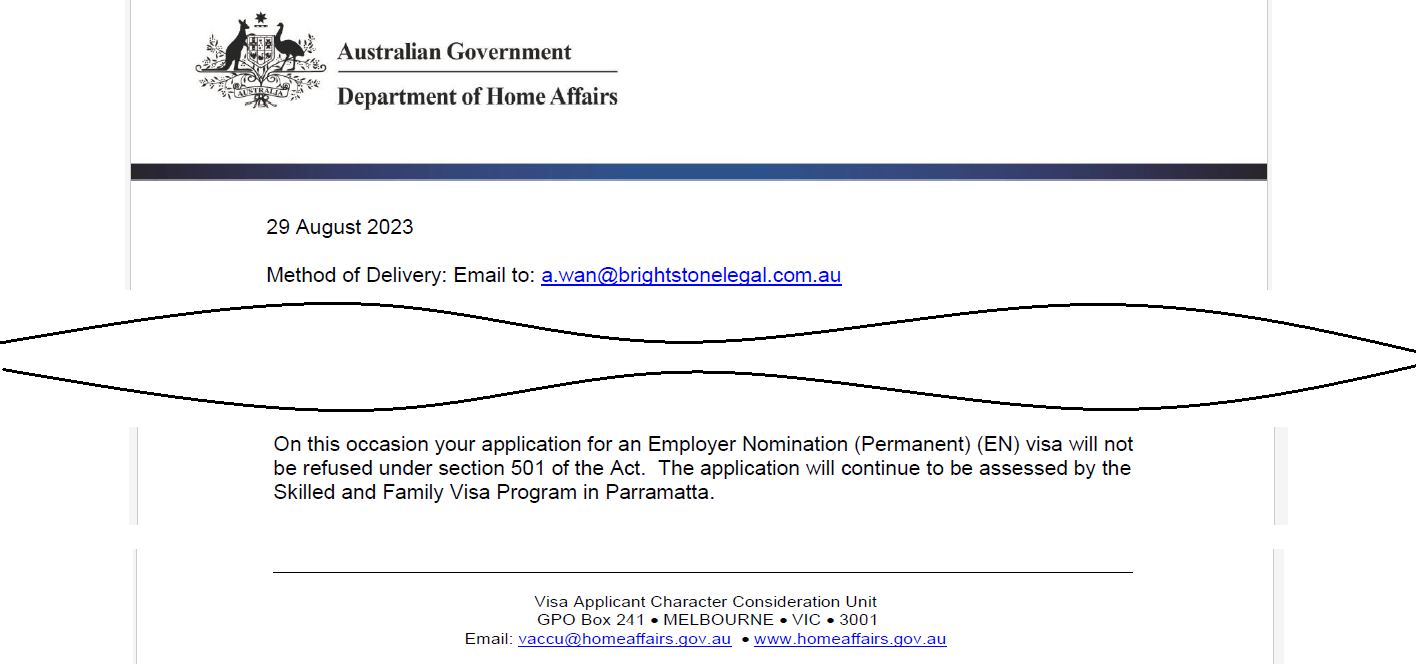
The concept of polygamous marriages within partner visas are not entirely disallowed. However, such marriage is not legally recognised under Australian law. There has been a recent case published which deals with the interactions of polygamous marriages.
The case of Cabsari (Migration) [2021] AATA 1432 (13 May 2021) deals extensively about polygamous marriages within partner visas and how they are to be assessed within the definition of ‘de facto partner’ in the Migration legislation.
The Law
‘De facto partner’ is defined in 5CB of the Act, which provides that a person is in a de facto relationship with another person to whom:
- they are not married; and
- have a mutual commitment to a shared life to the exclusion of all others; and
- the relationship is genuine and continuing; and
- the couple live together, or do not live separately and apart on a permanent basis; and
- the couple are not related by family.
One of the key words in this legal definition is ‘to the exclusion of all others’.
The Facts
The facts of this case are quite convoluted (different facts were provided at different times) but we summarise the material facts as:
- The Sponsor and the Visa Applicant married in a religious ceremony and under Indonesian customs on 10 July 2008. At this time, the Sponsor was already legally married to his first wife. At this point, we note that Indonesia or Islamic law recognises polygamous marriages.
- The Sponsor claims to have ‘separated’ from his first wife as of February 2013 but did not want his children to know so they would be able to grow up unaffected by the divorce.
- The Sponsor and the Visa Applicant thereafter claims to have commenced a mutually committed and exclusive relationship as of June 2013.
- Prior to the Visa Applicant moving to Australia in June 2014, the Sponsor had been living with the first wife and their children in Australia whilst the Visa Applicant primarily lived in Indonesia with temporary visits to Australia on visitor visas.
- In an interview with a customs officer at Perth airport on 30 December 2013, it was purported that she came to Australia to visit her husband. The officer had understood her evidence to mean that her husband was living with his first wife and their children in Cairns. In April 2018, the FCC had remitted the case that had been affirmed in first instance at the Tribunal back to the Tribunal for reconsideration of this specific piece of evidence. Now, the new Tribunal Member has accepted that the Visa Applicant may have had a different meaning due to her limited English language ability at the time of the interview.
- On 01 September 2014, she applied for the partner visa (subclass 820/801). This was refused by the Department in December 2015 and appealed to the Tribunal.
- A legal divorce between the Sponsor and his first wife took effect on 06 July 2018.
Findings
The Tribunal Member accepted the Sponsor’s explanation that he and his first wife wanted to ‘hide’ the fact that they were separated or divorced from their children as they were concerned of the psychological effect of a divorce upon their children.
Both the Sponsor and his first wife gave evidence that they had separated permanently with no plans to resume the relationship and that the Sponsor would frequently visit and live at the first wife’s house so that he could visit the son and to protect the son from finding out about the divorce. This, again, was accepted by the Tribunal considering the cultural view of a divorce.
As a result of these findings, the Tribunal found that the Sponsor and the Visa Applicant both had a mutual commitment to a shared life to the exclusion of all others from June 2013 (as claimed) despite the Sponsor was still validly married to his first wife.
They had also satisfied the other 4 aspects of a genuine and continuing relationship; financial, nature of household, social, and nature of commitment.
The Tribunal found that they had been in a de facto partner relationship for at least 12 months before the date of application, and meets the definition of ‘spouses’ at the time of decision. The application has now been remitted to the Department for reconsideration.
Conclusion
This case clearly establishes that, under the Migration legislation, the definition of ‘spouse’ and ‘de facto partner’ are different to that under Australian family law. Although under Australian family law, the second marriage is not recognised, the relationship between the Visa Applicant and the Sponsor was sufficient to satisfy the definition of ‘de facto relationship’.
It allowed the Sponsor and the Visa Applicant to apply for a partner visa whilst the Sponsor was still married to another person.
Nevertheless, these cases are quite complex and need proper explanation and treatment to succeed at departmental level. As with this case, it was highly litigated at Tribunal and Federal Circuit Court before reaching current success. It has taken almost 7 years and we note that the visa still has not been granted.
Therefore, if you have a tricky situation, you should definitely consult with a professional to ensure that all issues are properly addressed using cases.
We are able to help.
Need to consult with us? Book an appointment today.
Our team will give you expert advice that has been specifically tailored to your case.
Successful Cases

Domestic Violence: Passed character requirements/VACCU
31/08/2023
Visa granted to a dependent above 26 years old
17/08/2023
Schedule 3 requirement and family violence in partner visa
22/06/2023
Overstayed visa for 1.5 years
25/11/2022
Appeal won: student visa refusal based on GTE requirements
24/11/2022
Schedule 3 requirement avoided and partner visa granted
04/11/2022Related news

Why Get Help from Immigration Lawyers/Agents Sydney?

Explore the Functions of Australian Immigration Lawyers: Comprehensive Guide

IMPORTANT: 482 and 186 Visa Changes
How we will help
Free Assessment
Fill in the questionnaire here and we will call you for an obligation-free assessment. During this phone call we will run through your initial concerns and needs and book in a time for a more detailed consultation.
Consultation
Our consultation session runs for 30 minutes which will allow us to present to you a detailed strategy to meet the concerns and needs you presented to us in our initial phone call.
Our fee is $150 + GST for a 30 minute session. You can book in a consultation by calling us, emailing us or filling in the Contact Us form.
Settling the strategy and getting started
At the consultation, we will generally present to you a few selections of the best strategies.
We will also balance the time required, costs and difficulty so that you can choose the strategy you are most comfortable with.
Then we will handle everything on your behalf.
